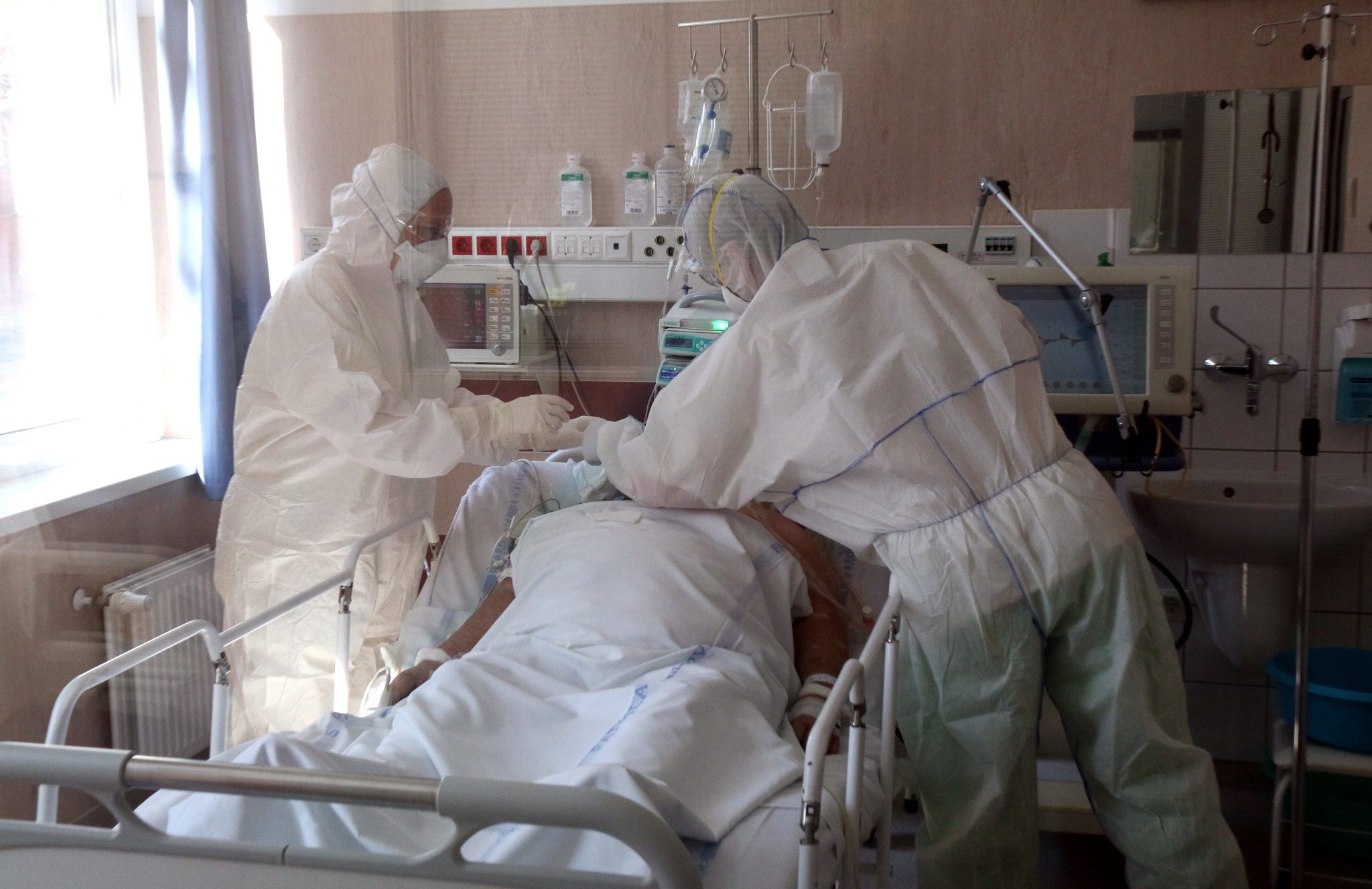
Hospitals are treating 5,811 Covid patients, 545 of whom need respiratory assistance.Continue reading

Hungary’s control over the current national Covid situation is quickly deteriorating. The Delta variant is rapidly spreading through the country, bringing infections and hospitalization numbers closer to the magnitude seen in the third wave. While health experts are provided minimal information to analyze the situation, healthcare workers face an increasingly heavy burden trying to care for their patients.
Former Chief Medical Officer Ferenc Falus told ATV News that the government should have introduced pandemic restrictions much sooner, since earlier action could have slowed the spread of the virus more effectively. Falus brought up the example of Russia, where a lockdown was mandated to slow the spread of the pandemic.
Virus researcher Miklós Rusvai thinks it would be important to have detailed information on how many vaccinated people there are in hospitals compared to the number of unvaccinated people. He thinks it would also be helpful to have information on the types of vaccines used.
General practitioner Zoltán Komáromi, who is also the health politician of opposition party Democratic Coalition, encourages everyone to get vaccinated and states that there is currently no conclusive research on how long the vaccines remain effective.
Once information on how much of their efficacy Pfizer and Moderna, the two most modern vaccines, lose in a month – provided with research regarding both the elderly and youth – the process can be systematized.”
The Hungarian Academy of Sciences (MTA) held a conference titled “Science and Parliament: Together against the epidemic” with the aim of creating dialogue between scientists and government officials. Unfortunately, many of the invited government officials, such as Chief Medical Officer Cecília Müller, did not show up.
Pharmacist György Keserű said that in its current state, the pandemic situation in Hungary cannot be controlled with vaccination alone.
Everyone needs to get vaccinated, and regardless of vaccination status masks need to be warn, disinfectant needs to be used, and if we feel symptomatic, we need to get tested immediately, and if we are infected, we need to isolate and take medication.”
Currently, only Favipiravir is available for medication in Hungary, but other medications are being tested. Keserű mentioned Molnupiravir and Paxlovid. The former can reduce potential hospitalizations by 50 percent, while the latter, which is expected to be available by the first quarter of next year, is estimated to reduce potential hospitalizations by 89 percent.
Speaking at the MTA conference in place of Cecília Müller was Deputy Chief Medical Officer Orsolya Surján. In her presentation, Surján spoke of the government’s cooperation with hospitals, the National Health Insurance Fund Management, and the National Healthcare Service Center. The information she shared did not touch on vaccination and non-vaccination among hospital patients, but it revealed how effective wastewater is at signaling an oncoming increase in Covid cases. Furthermore, it was shared that the Delta variant of the coronavirus makes up 99 percent of new Covid cases in Hungary.
Biochemist Balázs Sarkadi commented that while the government has access to information from the National Public Health Center (NNK), many health experts do not. Sarkadi said it would be helpful for regional researchers to have access to such information to improve scientific predictions around the virus and help with its understanding.
Sarkadi also noted that an effective communication line has not been developed between the government and Hungarian scientists. This means that the nation’s health experts do not know how effective government decisions are, and due to the lack of information it is difficult for them to help determine the best course of action against the virus.
To put into perspective how rapidly the virus is attacking the Hungarian population once again, information from specific hospitals around the country can be especially helpful. Dénes Balogh, Head of Nursing at a Szeged clinic, wrote a letter to Szeged’s healthcare workers regarding the current pandemic situation.
The letter, which came into the possession of Szeged.hu, states that “the general condition of patients is significantly worse than during previous Covid waves, and the number of people requiring intensive care is also higher.”
The current wave is expected to peak in either the middle or the second half of December.”
Dénes notes that there are currently 246 patients at the Szeged Clinic, which is higher than numbers seen during the peak of the second wave and is already close to the 300 patients seen during the peak of the third wave.
Tamás Irinyi, President of the Chamber of Health Professionals in Csongrád-Csanád County, told Szeged TV Online that the number of available healthcare workers has a clear impact on the condition of Covid patients. While the ideal doctor-nurse ratio is one to four, in Hungary this ratio is one to eight. Furthermore, Irinyi said Hungary’s healthcare instruments are less developed than those of Western nations.
Irinyi stated that Adrianna Soós, President of the Independent Healthcare Union, estimates that there are around 10-15 Covid patients to a nurse in Hungary, which is too much for one nurse to handle. He also emphasized that it is not necessarily the number of doctors which is the problem, but rather the lack of nurses.
The Chamber president added that it takes about 3-4 years to fully train a nurse, and that the number of people taking on such a career has significantly dropped. With an average age between 50 and 60, it is likely that 10-15 thousand Hungarian nurses will soon retire.
Featured photo illustration by János Vajda/MTI